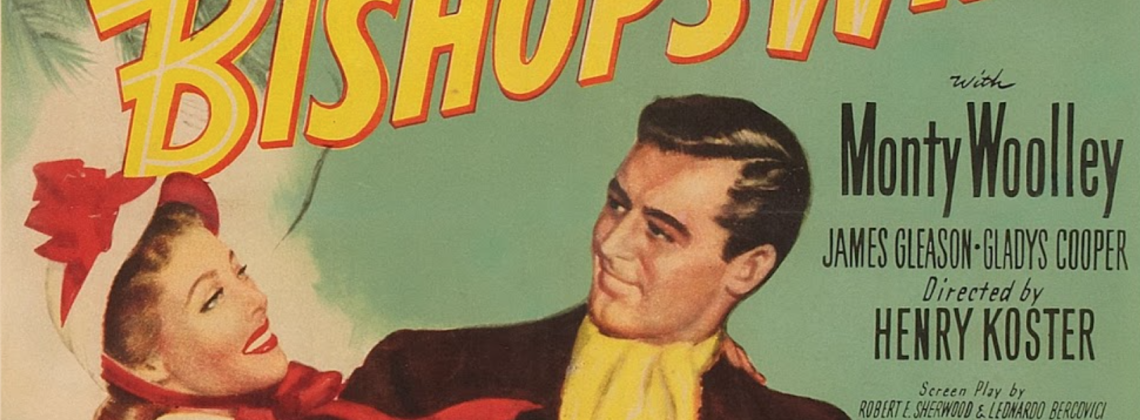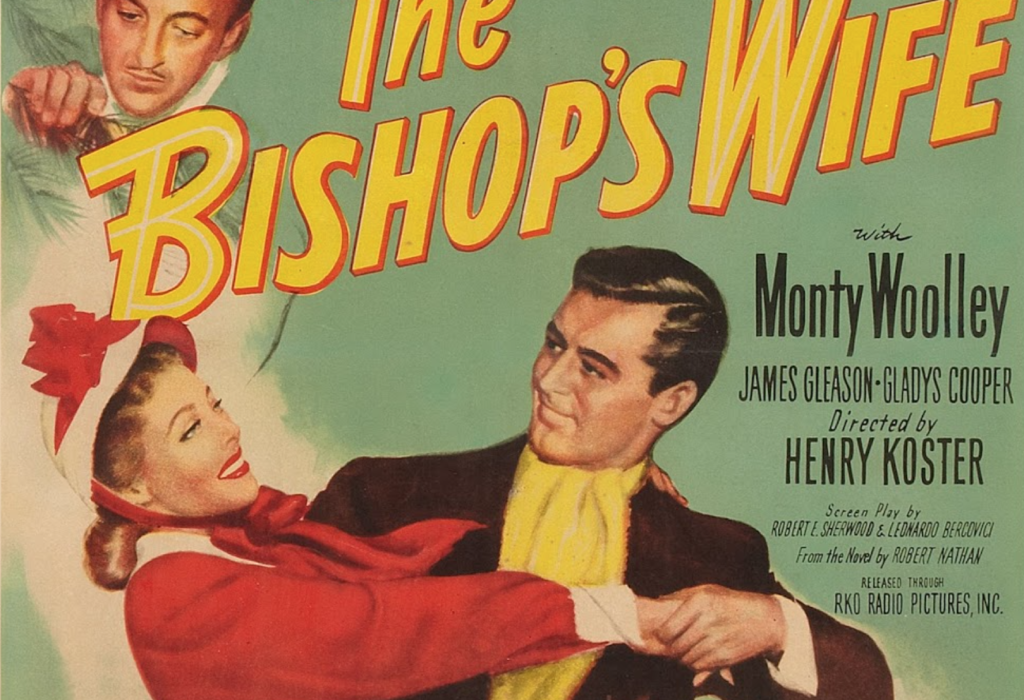

Celebrating the second greatest Christmas film ever made
It’s A Wonderful Life is the first. There is no doubt whatsoever about that. This must be distinctly understood, or nothing wonderful can come of the runner-up I am going to propose.
The second greatest Christmas movie ever made is The Bishop’s Wife. Curiously, it too is about a man who is visited by an angel during the holidays. And, once again, this celestial being helps this fundamentally good but currently frustrated and wrongheaded man to stop hankering for what he can’t have and to appreciate what he does.
The best Christmas film of all time was released in 1946, and it was immediately followed by the second best in 1947. For some mysterious reason, cultural greatest can bunch up this way. People who like oratorios still listen rapturously to those written by Bach and Handel, both of whom were born in 1685. Opera lovers still delightedly attend those composed by Verdi and Wagner, both of whom were born in 1813. Plato knew both Socrates and Aristotle: These three greats certainly should have been spread out a bit more. And if we are doing concurrent triads, another beloved holiday film, Miracle on 34th Street, was also released in 1947.
As to the second greatest Christmas film, the bishop (Episcopalian) in question is Henry Brougham (played by David Niven), whose vaulting ambition is to build a soaring cathedral. The task of angel Dudley (Cary Grant) is to get this man of God to remember what truly matters. The latter category includes both the poor, struggling parish of St. Timothy’s and his wife, Julia (Loretta Young). With the exception of the exasperated bishop himself, Dudley’s heavenly charm works on everyone, and soon he and Julia are heading over their ice-skate-clad heels towards an emotional affair. That, admittedly, is an unnerving development. It can feel a bit creepy. Nothing is really wrong, however, that a Christmas miracle or two cannot put joyously right.
The Bishop’s Wife is a yuletide stocking overflowing with fun and humor. Every scene works. You might even think of it as a classic romantic comedy—assuming, of course, that you are broadminded enough to believe that a romance can be a story about a husband and wife. There are numerous little knowing nods to the audience that one can continue to discover and enjoy. The scene in which Dudley plays the harp is so woven into the plot that it might take a while to twig that you are being played with the old convention of angels playing harps. And you are left to notice without it ever being mentioned that the bishop’s dog is, of course, a St. Bernard.
People are supposed to signal how cultured they are by observing that the book is better than the movie, but the film is incomparably better than Robert Nathan’s 1928 novel. One point in the book’s favor, however, is that it really is about the bishop’s wife, while the film (as is also the case with It’s A Wonderful Life) is focused on the husband. Still, the novel is not at all what one wants in a Christmas story. There is no yuletide cheer. It is a work of wistful sadness. There is no flaming rum punch to warm this husband’s heart, even at the story’s end: “He believed that he satisfied her as a bishop; and felt that nothing further was expected of him.”
People are also supposed to signal their true admiration for a film by disparaging any attempt at a remake, but The Preacher’s Wife (1996) is also in my top rotation of holiday movies. Set in a Black church with glorious Gospel music shaking its all-too-precarious rafters, it stars Whitney Houston as Julia and Denzel Washington as Dudley. Courtney B. Vance brilliantly plays the harried and distracted minister, whose character is renamed Henry Biggs. The story is told retrospectively by the Biggs’ son, Jeremiah, who remembers it as “the Christmas I learned all about miracles.” Likewise, a worthy remake of Miracle on 34th Street appeared in 1994. I like the original better, but the scene in which Kris Kringle speaks sign language with a deaf child unquestionably surpasses its analog in the original. Likewise, The Preacher’s Wife has its own charms, not least the wall-to-wall, uplifting church music.
One loss from The Bishop’s Wife in the remake is the endearing character of Professor Wutheridge, an old scholar and a religious skeptic. He has been telling everyone for decades that he’s working on a book but, in truth, he has writer’s block. When he finally gets some divine inspiration, he worries that it has come too late. Broken-down old historian that I am, my heart leaps every time the angel prophesies a word of faith to him: “You’ll finish your history, professor. You’ll have the time.” Towards the end of the film we see Wutheridge showing up at St. Timothy’s for the Christmas service.
Another side character is Sylvester. He is a cab driver and therefore, naturally, a philosopher. He and the angel have this exchange as they ride along:
Sylvester: Do you know what’s wrong with this world?
Dudley: Oh, I’ve heard several versions of that.
Sylvester: There are too many people who don’t know where they are going and want to get there too fast.
One running gag involves a scarf. The Broughams’ housekeeper, Matilda, had given it to the bishop on the previous Christmas, but he has just left it in a closet to languish. Dudley starts wearing it and Henry keeps noticing it and being annoyed. Christmas is the season to start appreciating what we already have and to make the most of it while we have it.
It’s A Wonderful Life, The Bishop’s Wife, and The Preacher’s Wife all have the same message: It is time to stop striving for some vacuous notion of success and settle for being happy. It is time to stop trying to impress the wrong people and turn our hearts and time and attention toward the families and communities that love and value us. As the angel says of Julia in The Preacher’s Wife: “She only has to open her eyes to see that everything she always wanted she already has.” It’s a message I need to hear at least once a year.
Timothy Larsen teaches at Wheaton College and is an Honorary Fellow at Edinburgh University. He is the author of John Stuart Mill: A Secular Life and the editor of The Oxford Handbook of Christmas.